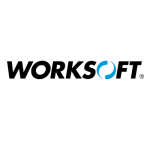What is our primary use case?
The primary use case of the UiPath Test Suite is testing. Every process could have unexpected issues, so the primary use case is that there is a defined set of steps for every scenario, so you'd probably create different scenarios and data. You can also handle data dynamically because, for the same set of values, you can run that differently for different test data and have mock test flows.
For example, the best use case for UiPath Test Suite is when you have a website where people create an account. For that account, you can create the part with correct values, then you can feed all the values that are out of bound, such as special characters, or you can have a different value entered, which is not accepted so that you can play around with it. Each of the scenarios mentioned helps a lot, so when you get that over to the client, and every time there's a new deployment, the client can just directly run the tree test to ensure that every functionality works well, which helps reduce the support the client would need as well as budget in the long run. The client might have to spend a little longer to develop this, but it's a one-time task, which means that only when something new comes up, you might have to update the test script, reducing the effort to communicate with the vendor or developer back and forth. UiPath Test Suite also helps ensure that the test cases work well, allowing you to go ahead and run the final process and production.
How has it helped my organization?
UiPath Test Suite has helped improve my client's organization as the client doesn't have to come back to me or my team multiple times. The tool has reduced the client's need to communicate with me or my company.
At the time of development, the time usually increases by twenty to thirty percent, which includes how my team would develop the test cases. Still, no extra time would be involved later when the client uses the UiPath Test Suite. The client would just need to run the tool or schedule it once a week to ensure the process works well, and won't have to check with my team or company if it's working fine. Even though the bot is failing or there's a design issue, the client just has to check the tool and see if any test script is failing. If the script is not failing, that means there's a data issue from the client's end, which means the client doesn't have to rely on my company to fix it. UiPath Test Suite really helped the client reduce costs. Even though the development costs took a hit initially, it was better for the client in the long run.
What is most valuable?
I like that UiPath Test Suite is a very helpful tool that many people have not appropriately explored, but as I started my career as a tester, I understand how useful it is. I've used RPA and testing tools for at least two months, and I found UiPath Test Suite a good tool that lets me design scripts and ensure that the client is not worried about the basic process. The tool works as expected and handles one of the most important exceptions in the process.
Using UiPath Test Suite has also been economical for the client, who used to have an RPA admin who managed the processes and monitored whether all worked well. Still, if any issue came up, the client had to come to my team of developers to have the problem fixed. I created the test and the scripts for the processes. The client could also run the bot based on a schedule to ensure the process runs well, each account is up-to-date, and there is no failure in the process, but as soon as an item is flagged, the client has to come to my team. However, with UiPath Test Suite, the client doesn't have to connect with developers or my team, which saves a significant amount of time, and also means needing just one person to manage or handle the processes, rather than being charged every time my team provides help to the client, helping save on costs as well.
UiPath Test Suite can help with the automation you're developing. If I did another workflow, for example, and I want to test it, I can feed it different parameters, as every workflow can have parameters fed into it. UiPath Test Suite can take values from an Excel sheet or data table and show the data or records list, including all the different scenarios. Regarding what the tool can test, it can test anything you can develop from your end. There is no limitation to what UiPath Test Suite can help develop and test.
What I like most about UiPath Test Suite is that it's straightforward, and any user who knows how to use the UiPath Studio can learn how to create a test script in as fast as thirty minutes. There's nothing new you must learn to use UiPath Test Suite because it only has three sections: Given, Then, and When. You divide your script and predefine the values, what will be the input, and what steps you have to take to ensure a specific scenario works, and then you trigger the workflow based on the parameters you provided for the script. Then, you may have to close some applications and wrap up that exhibition for that scenario, so using UiPath Test Suite is very straightforward. The tool is easy to learn, so any user who's probably gone through UiPath's advanced developer certification would have also gone through the UiPath Test Suite. Not everybody implements it, but I feel the tool should be implemented because it's beneficial.
Apart from being developers, my company is also a UiPath partner, which means it has better access to connecting with the UiPath team and getting solutions faster, which I find valuable in the UiPath Test Suite.
I like that the tool shows you how much percentage is covered out of all scenarios you run and the conditions, such as if conditions, wild conditions, or some exception handling.
If something has been missed, you can also tweak and improve the test scripts to ensure every activity is fetched when it's tested so nothing's missed out and ensure all runs fine, which I also like about UiPath Test Suite. In the test field or the test manager, when you go to the architecture, you can also see the percentage and when you run it locally in your machine, which helps you identify whether it needs to be handled.
My impression of UiPath Test Suite having the ability to automate tests from a wide range of technologies is that it has the advantage over other tools. When I started learning RPA, I was working with the testing team, and I wished there was a test kit like UiPath Test Suite at the time. I created an automation to test an application, and compared to that, UiPath Test Suite definitely had an advantage. Even Automation Anywhere and Power Automate didn't have functionalities found in the UiPath Test Suite.
UiPath has also matured a lot in the last two years, as it provides offerings such as task mining, process mining, and document understanding, which may also be found in other automation or RPA tools. Still, UiPath Test Suite is the only tool I've not seen in competitors, which is why UiPath is at an excellent advantage if you know how to use it. It's not difficult to learn, and if you know how to develop in UiPath Studio, you can easily develop and use UiPath Test Suite.
The tool helped free up staff or employee time for other projects because you would not need a separate testing team at all. An employee handling the testing could be cross-trained to do development work. For example, your team could spend more time developing and designing, learning other skills, and improving work.
As for integrating UiPath Test Suite with other lifecycle tools and applications, you can integrate it as long as your application has APIs involved. Say you have to integrate a flow that runs on ServiceNow, which can be integrated with an API. It will work with the UiPath Test Suite. However, if it involves running on a desktop or machine, that would involve UI elements, requiring you to stick to the UI part and develop the workflow instead of integrating it, so that would vary with what type of flow you are looking into. If it's API-based, you can use UiPath Test Suite, but if it's desktop-based, it would be best to use the built-in tool.
The tool helped reduce maintenance, as it has reduced the need to communicate between clients and my company, which helps in terms of maintenance. Maintenance was reduced by thirty to forty percent, mainly from relaying test cases properly and teams following the standards. Maintenance only involves one person and doesn't require the involvement of many people.
UiPath Test Suite also helped reduce the total cost of ownership or testing by thirty percent. The tool only requires more development time initially, but then it does save time in the long run.
What needs improvement?
An area for improvement in the UiPath Test Suite is maintaining file locations, as that's currently challenging. Say I'm creating a test script, and I create some test data that runs the test script usually created in an Excel sheet. What happens is whenever I import or export from the tool, I have to ensure it contains the Excel sheet with it, which can become a challenge in terms of maintaining the file. It would be better if the files could be on the cloud through a data service within the tool, allowing you to use tables or maybe integrate with an SQL server.
Storing the test scripts is what needs to improve in the UiPath Test Suite, as it's currently a challenge to some extent. Maintaining the files is a bit challenging, especially when you need to keep those locally, because for every workflow you develop, you have to create a test for it, and for each test, you have to create a script, which means you need to create in an Excel sheet.
Another area for improvement in the UiPath Test Suite is its limitation in handling all kinds of variables. It works fine ninety percent of the time, but ten percent of the time, you'd have an issue where you can't just handle it with a string. You'd need some other data type as well, which is currently a limitation of the tool.
For how long have I used the solution?
I've been using UiPath Test Suite for a year, mainly with my recent client. Not every client usually goes for UiPath Test Suite because, most of the time, the client utilizes a group of testers for manual tests or other tests, in which the client hires testers to do the testing and then validate the results. Most clients do not follow the standard process, so it varies from client to client, but my experience with UiPath Test Suite comes from one client who specifically wanted to follow the standard process and ensure that the data is up to the mark.
What do I think about the stability of the solution?
UiPath Test Suite has been pretty stable ninety percent of the time. Stability-wise, the tool can be unpredictable ten percent of the time because the same workflow running with the test case can be a problem.
For example, when using the Excel sheet, the challenge is that every value you feed into it must be a string. If you change the parameters or variable type to an integer or any other kind, it can't handle it, which could affect stability ten percent of the time.
What do I think about the scalability of the solution?
There's no issue with UiPath Test Suite scalability-wise. If the area for improvement on storing scripts locally is addressed, then the tool can be scaled to any number without issue.
How are customer service and support?
For UiPath Test Suite support, I've handled communicating with support for some of the client's users, and the team has been very helpful and has been doing follow-ups on time.
Some issues can be solved via email, while some require a call, and I usually get the calls scheduled quickly. Support for UiPath Test Suite has been very good, so I'm rating support eight out of ten.
How would you rate customer service and support?
Which solution did I use previously and why did I switch?
I didn't use a different solution before UiPath Test Suite.
How was the initial setup?
Deploying the UiPath Test Suite is straightforward. Within twenty to thirty minutes, you'll be able to learn how to do it, as the process is not complicated. The tool is straightforward to develop and deploy. It's similar to deploying any other process on UiPath Studio. You have the option to either publish the solution or the test cases.
The deployment of UiPath Test Suite only took a matter of seconds because you just had to click "Publish." You go to the UiPath Orchestrator and run the script. The deployment is not complicated in any way.
As UiPath Test Suite is included within the UiPath Studio and is not a separate application, installing it, giving permissions, and logging into your account on your local machine doesn't take more than a few minutes.
What's my experience with pricing, setup cost, and licensing?
I wasn't involved in the negotiations for the UiPath Test Suite, so I have no information on its pricing.
What other advice do I have?
UiPath Test Suite is developed on-premises or on your local machine. Once you've completed the development, you deploy it on the UiPath Orchestrator. Within UiPath Orchestrator, there's a testing tab with test scripts that you can run locally, but the target or vision is to develop it locally and run it on the UiPath Orchestrator.
The client has about ten to fifteen employees using UiPath Test Suite for automation, while at least two people use it for testing, which saves some time and effort.
In terms of maintaining UiPath Test Suite, if an automation needs an update or UiPath Studio needs to be updated, then UiPath Test Suite would also need to be updated.
To anyone who'd say that their automation testing process could be too complex for UiPath Test Suite, I'd say they would still want to see what part of it can be tested. Sometimes, there could be a challenge where you can't create a test script for a particular scenario. However, that wouldn't apply to all scenarios. Though you may not be able to cover one hundred percent with UiPath Test Suite, the tool could still cover at least seventy to eighty percent of the scenarios, including complicated ones that are pretty difficult to handle. Still, most of the time, those won't be an issue with UiPath Test Suite.
I would recommend the UiPath Test Suite to others. If you want to get comfortable with it, go ahead and create a test case for one workflow and see how it works. My advice to others is to test the tool out. I would definitely recommend it as no other solution has this offering, and I find the UiPath Test Suite very useful.
My rating for UiPath Test Suite is a solid seven. I see a lot of room for improvement, but UiPath is going in the right direction.
My company is a partner of UiPath, working with multiple enterprise clients.
Which deployment model are you using for this solution?
On-premises
If public cloud, private cloud, or hybrid cloud, which cloud provider do you use?
Other
Disclosure: PeerSpot contacted the reviewer to collect the review and to validate authenticity. The reviewer was referred by the vendor, but the review is not subject to editing or approval by the vendor. The reviewer's company has a business relationship with this vendor other than being a customer: Partner



















